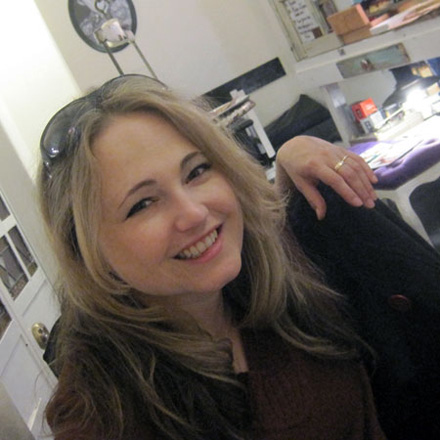 Tweet
Tweet
Featured on Aug 14, 2012
Travis Alber
"There is opportunity in chaos."
Bio:
Travis is Co-Founder of ReadSocial, a startup that layers paragraph-level conversations on top of websites, iPad apps, ebooks, and just about anything else digital. It uses hashtags to group people, and with it she hopes to be properly disruptive to outdated commenting models. She began learning about computers from her dad, an old school videotex expert (google it) in the heady days before the real internet was born.
Her past lives include being the Creative Director at a rich media firm in LA, running creative for an interactive R&D department at Cisco (much cooler than it sounds), and filling the role of interactive designer with a decent number of startups during Internet Boom 1.0, out in San Francisco. Before that she was toiling away for a MA in Interactive Media. Travis’ previous startup was BookGlutton.com, a place where people could read ebooks in a browser and chat inside chapters - it was a trial by fire within the publishing industry, and also pretty cool.
She has a superhuman memory (except for people’s names...what’s up with that?), and will someday write a great science fiction book.
- Title: Founder, ReadSocial
- Location: SoHo, Upper East Side
- Contact: @screenkapture
What drew you to try to connect publishing with the tech industry? How has the reaction to ReadSocial been?
Publishing is undergoing a tremendous shift. Combine that with a lack of technical knowledge, and you get a huge opportunity to build something transformative. The reaction to ReadSocial has been very positive. We offer an easy way to add contextual conversations inside books and websites, at the paragraph-level. Most of the industry is interested in embedding social, but they won't build something that extensive or scalable - especially something that can cross reading systems. It's a good fit.
Can you give us any hints as to what your great science fiction book is going to be about? What are you reading at the moment?
I'd be lying if I didn't tell you most of my reading is limited to startup stuff, but I did pick up Chain of Chance by Stanislaw Lem for my recent visit to Buenos Aires (astronauts! chaos theory!). Mine is a thriller set in the near future that deals with how technology insinuates itself into our everyday lives and mixes advertising, art, freedom, and privacy concerns. It takes place in NYC.
The publishing industry is facing quite a shakeup with the advent of ebooks and ereaders. What do you see for the future of the publishing industry and how do you plan on being a part of it? I noticed you said that your first startup, BookGlutton, was a "trial by fire within the publishing industry." Can you elaborate a little more about that? What did you learn that you'll take with you to your next venture?
Publishing is going to be mobile, social and DRM-free. All paths lead to the web, and it will take on the same characteristics that embody web content. The more you understand the interplay between content, social sharing, and the web, the closer you are to a successful publishing startup.
Our last startup, BookGlutton, was way too early. We built a web-based reading system with group features in 2007, and we couldn't get publishers to give us content. They were very forceful about DRM and territorial rights, but there was also an odd concern that publishing might not go digital any time soon (seriously). Amazon changed all that by making the Kindle successful, and like Tim O'Reilly says, a rising tide raises all boats. We talk about it in a chapter we wrote for Books: A Futurist Manifesto.
With our new startup, ReadSocial, we enable a key piece of the puzzle for publishers. It can be integrated with their content, but it's simple and doesn't require they hand anything over to us, distribute through us, or even give us their users. We just provide the one piece that would be really difficult for them to build: a sustainable social system that is granular enough to talk about the finer points, one that flows across systems to follow content. That key piece has inherent value for publishers, but is something they're unlikely to produce in-house. That seems like a good position to be in.